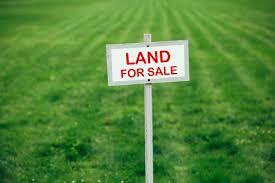Centralized data on 27 medium and large land transactions indicate that the volume of land investments amounted to € 194 million in 2020, down 6.5% from the previous year. The land market was affected by the period of two months in which the state of emergency was established, but also by the state of expectation of office or hotel developers, who were less active.
The cumulative surface of the traded lands amounts to about 1,930,000 square meters (193 hectares), the largest lands being purchased by Dedeman, who secured a 64-hectare lot in Ștefănești, near the WDP Park 2 logistics park, respectively SIF Banat Crișana, which bought the IMGB industrial platform from Berceni, of 54 ha.
The share of buyers with Romanian capital has doubled compared to the previous year, up to 81%, and the focus has shifted from office hubs, which have been among the most active in recent years, to peripheral areas, where trading values are lower.
The unpredictability of the general legislative framework, but also the local one, affects the image of the market especially in terms of foreign investors, who over the last 20 years have made a significant contribution to the development of all segments of the real estate market.
"The land market in Bucharest has never been devoid of effervescence, so after the impact of the untimely postponement of the decision to raise the ceiling for a reduced VAT, developers have new surprises, namely the suspension of coordinating PUZs for the 5 sectors in which these urban regulations were still valid. We appreciate the good intention of the authorities to ensure that correct decisions are taken in all respects, but it is very important to take into account the economic impact of such decisions and, moreover, the image impact, because decisions affect the stability of the real estate market in Romania", said Alexandru Mitrache, Head of Transactions, Land & Investment, Cushman & Wakefield Echinox.
This measure could favor local developers, who are more flexible and better anchored in the legislative and urban environment of Romania, and the market could receive a new positive impetus in case of reconsideration of the decision to postpone the application of the reduced VAT rate to new apartments with prices up to 140,000 euros.
"On the other hand, we believe that this decision may favor serious local investors, who, knowing the market, have always considered the development of individual zonal plans, independent of the coordinators of town halls, to prevent such situations. Therefore, even this decision should not have a real impact on the market dynamics, but perhaps in the worst case it will affect the plans of those owners who speculatively sought the approval of the coordinating PUZs to demand a higher price when selling the land. Well-thought-out projects have always taken into account all the normal stages of authorization, both in terms of time and costs. However, we hope for a return to the decision to increase the ceiling for the application of the 5% VAT on apartment sales, a measure that would further stimulate the residential market and the related economy, from builders and suppliers to financing banks, actors who have a significant contribution to the state budget”, added Alexandru Mitrache.
Despite the pandemic context, the unemployment rate calculated in Bucharest remained constant at 1.2% throughout 2020, while the average net salary increased, in lei, by 7.6% in December 2020 compared to the similar month of the previous year.
Moreover, the number of transactions with individual units (especially housing) increased by 5% during 2020 in the Bucharest - Ilfov region, the interest for more spacious housing in the second half of the year compensating for the semi-blockage during the lockdown period. (Source: Cushman & Wakefield Echinox)


